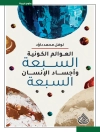In ‘The Spiritual Guidance of Man and of Mankind, ‘ Rudolf Steiner presents a profound exploration of human spirituality and its interconnectedness with the cosmos. Through a blend of philosophical inquiry and esoteric wisdom, this work delves into the spiritual evolution of humanity, positing that individual development is deeply intertwined with collective consciousness. Steiner’s literary style is both insightful and accessible, merging elements of mysticism with practical guidance, inviting readers to reflect on their spiritual journeys. His ideas are situated within the broader context of early 20th-century spiritual movements, bridging science, religion, and philosophy in a quest to understand human existence. Rudolf Steiner, an Austrian philosopher and social reformer, founded Anthroposophy, which emphasizes spiritual science and personal development. His extensive background in the natural sciences, along with his involvement in educational innovations like Waldorf education, influenced his viewpoints on the spiritual dimensions of life. Having engaged with various philosophical traditions, Steiner sought to provide a comprehensive framework for understanding human spiritual development within a modern context, addressing contemporary challenges with an age-old inquiry into the nature of the human spirit. This essential text is highly recommended for readers interested in spirituality, philosophy, and personal growth. Steiner’s insights offer a unique lens through which to better understand the human experience while encouraging a deeper awareness of our responsibilities to ourselves and the collective. Engage with this transformative work to enrich your understanding of spiritual guidance and to cultivate a sense of connection with humanity’s greater purpose.
Yazar hakkında
Rudolf Steiner (1861–1925) was an Austrian philosopher, social reformer, architect, and esotericist, who is best known as the founder of Anthroposophy, a spiritual movement that advocates for the development of a complete understanding of the human spirit. Steiner articulated his ideas in a multitude of lectures and books, among them ‘The Spiritual Guidance of Man and of Mankind, ‘ which offers insights into the spiritual development of humanity and individual souls. Trained in philosophy and natural sciences, he initially made contributions to Goethe’s scientific works, but his focus gradually shifted towards his own vision of spiritual science. Steiner’s broad literary output includes fundamental Anthroposophical works like ‘The Philosophy of Freedom, ‘ ‘Occult Science – An Outline, ‘ and ‘How to Know Higher Worlds.’ His literary style is characterized by a complex synthesis of ideas drawn from Western esoteric traditions, German Idealist philosophy, and his clairvoyant observations of spiritual realities. Steiner’s influence permeated various fields, leading to the creation of Waldorf education, biodynamic agriculture, and anthroposophic medicine. As a figure whose work bridged the 19th and 20th centuries, Steiner was a catalyst for those seeking a deeper, spiritually oriented understanding of life and human purpose.












